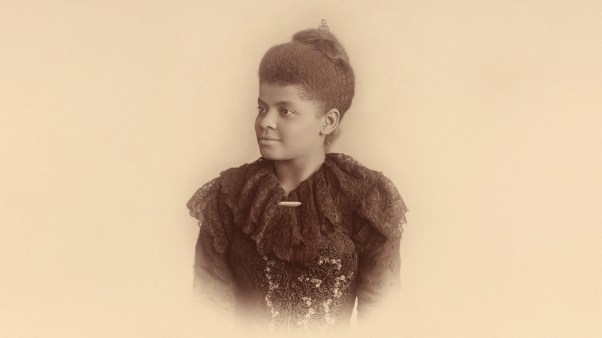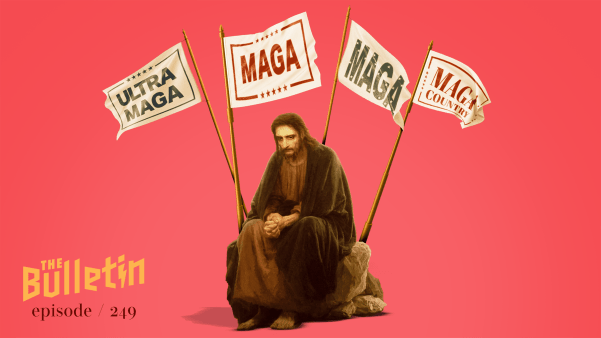After being threatened with a lawsuit by the American Civil Liberties Union, on June 1 the Los Angeles County Board of Supervisors proposed removing a small cross from the county seal in a 3-2 vote. The seal points to a number of formative influences on the county, including Catholic missions and agriculture. On June 4, the Thomas More Law Center Ann Arbor, Michigan, representing a county employee, filed a suit in federal district court in Los Angeles accusing the county and the supervisors of sending a “government-sponsored message of hostility towards Christians.” Supervisors confirmed their decision on June 8. Robert Muise, an associate counsel with the law center, discussed the case with CT Associate News Editor Stan Guthrie.
Where do things stand legally?
We, on behalf of a county employee, have filed a lawsuit against the county alleging that the county seal, as it stands now, which was adopted in 1957, does not convey a religious message. In fact, it just conveys the importance that Christianity and other factors had in influencing the culture and the history of the state of California and the county of Los Angeles.
However, the county, by singling out the cross and targeting Christianity for removal, really is revising history. They are now conveying a message that is anti-Christian, and this anti-Christian message in fact does violate the Establishment Clause [of the Constitution]. The Establishment Clause [“Congress shall make no law respecting an establishment of religion, or prohibiting the free exercise thereof”] requires the government to be neutral. But now by singling out Christianity for removal from the symbol, and really removal from the history and founding of the county, they are conveying a message to Christians that they’re second-class citizens. Their actions now have taken them over the threshold of constitutionality [and] convey an anti-Christian message.
Why is this case important?
I think what it demonstrates is that Christians aren’t going to roll over and play dead when the ACLU rattles the saber. There are two sides to this issue. The ACLU is up in arms because there’s this tiny cross appearing on this symbol. You’d have to strain your eyesight to see where this cross is, actually. The goddess Pomona is the central figure of this particular symbol, but obviously the ACLU doesn’t have any problem with that. They’re targeting Christianity. And they go around throughout the country [and] threaten municipalities with lawsuits if they don’t bend to their will.
This lawsuit will show that the municipal leaders—the supervisors, the government officials—were bending to the will of the ACLU, [but] that there were people out there who aren’t just going to roll over. When they’re taking that cross off … they’re telling Christians that “you had no place, no role in the history,” which is revisionist. And they’re telling them that they’re second-class citizens, that their influence can’t be represented in a symbol that demonstrates the historical and cultural significance of the county.
There have been many cases where the ACLU or other groups have sued to have a cross or some other religious symbol removed from a city crest. How is this case different?
In fact, we made public statements that we would have represented [Los Angeles] county in defense of their symbol. We defended the [public display of the] Ten Commandments in Utah just recently, and we succeeded against attacks of anti-Christian groups that wanted to remove those. So we would stand on the side of the municipalities … But when you have municipalities who are cooperating with the ACLU and are caving in to them, now they’re opening themselves up for Christians to file lawsuits. So I think this will establish an important precedent that … Christians … are not going to just let the ACLU bully people around and that there may, perhaps, be consequences.
Municipalities are really going to have to choose their poison. Which do you want to do? Do you want to just offend the ACLU or do you want to offend Christians? If your actions are conveying a message that is offensive to Christians and violates the Establishment Clause, then watch out, because you could subject yourselves to a lawsuit from that end.
Do you think this case is possibly precedent-setting?
I think in some respects it is. And the context of this particular case is important because that symbol, as it stands, is constitutional. Any legal scholar who would view [the cross] objectively would say that this does not convey an impermissible state-sponsored message of religion. However, by their actions, now [supervisors] are conveying an impermissible state-sponsored message that is hostile towards Christians. So, in this context, I think it is unique. [I hope] it will establish a precedent and prevent the ACLU from their systematic removal of Christianity from the public square across the country, which appears to have been their goal, as you can see from the cases that they’re taking.
Copyright © 2004 Christianity Today. Click for reprint information.
Related Elsewhere:
Other coverage of the cross controversy includes:
Protesters rally for county seal cross | More than 700 people packed the Los Angeles County Board of Supervisors meeting Tuesday to chastise lawmakers for voting to erase a small cross from the county’s official seal (Los Angeles Times)
Crosses on seals stir controversy | The ACLU has prompted two governmental bodies to drop the symbols (The Press-Enterprise, Riverside, Ca.)
Secularism gone awry in battle over LA’s seal | While I am disturbed by recent attempts to turn “secularism” — the principle that religious beliefs should not be imposed on public policy — into a dirty word, this is precisely the kind of thing that gives secularism a bad name (Cathy Young, The Boston Globe)
Tiny symbol, huge fuss | Until last week, who besides the ACLU’s lawyers and a handful of bureaucrats even knew that Los Angeles County’s seal incorporates an itsy-bitsy cross, along with a Spanish galleon, a tuna, the Hollywood Bowl, oil derricks, a Roman goddess of fruit and more? (Editorial, Los Angeles Times)
A symbol of our history — not a seal of approval for a religion | The First Amendment allows us to appreciate faith’s role in our history as we avoid improper favoritism among different traditions (Douglas W. Kmiec, Los Angeles Times)








